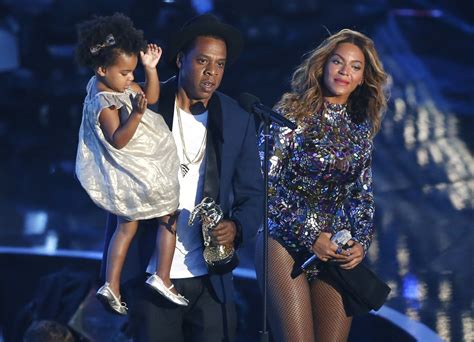
Kevin Costner reportedly sacrificed a substantial portion of his potential earnings from the “Yellowstone” franchise, specifically foregoing a $12 million payout for Seasons 5, Part 2, to expedite his exit and focus on his passion project, “Horizon: An American Saga.” This decision, while freeing him to pursue his directorial ambitions, raises questions about whether Costner ultimately lost leverage in the contentious negotiations surrounding his “Yellowstone” departure and whether his ambition outweighed the significant financial rewards.
Kevin Costner’s departure from the immensely popular “Yellowstone” series has been fraught with drama, disputes over scheduling, and ultimately, a significant financial concession. According to reports, Costner walked away from a $12 million paycheck associated with the second part of Season 5 to accelerate his exit from the Paramount Network show. This bold move was purportedly driven by Costner’s desire to dedicate his time and resources to his ambitious cinematic venture, “Horizon: An American Saga,” a multi-part Western epic that he is directing, producing, and starring in.
The decision to forgo such a substantial sum of money highlights the complexities and high stakes involved in Costner’s relationship with “Yellowstone.” Sources close to the production indicate that the primary point of contention revolved around scheduling conflicts. Costner reportedly wanted to reduce his filming commitment for the final episodes of “Yellowstone” to allocate more time to “Horizon.” However, these requests were allegedly met with resistance from “Yellowstone” creator Taylor Sheridan and Paramount Network executives, leading to an impasse.
“Horizon: An American Saga,” represents a significant personal and professional investment for Costner. He has described the project as a long-held dream, a passion project that he has been developing for decades. The film series is envisioned as a sweeping historical drama that explores the settlement of the American West, focusing on the perspectives of both the settlers and the indigenous peoples. Costner’s commitment to “Horizon” is unwavering, and he has reportedly invested a considerable amount of his own money into the project, further underscoring its importance to him.
By prioritizing “Horizon” over the “Yellowstone” payout, Costner made a calculated gamble. He bet that the creative and professional fulfillment derived from realizing his vision for “Horizon” would outweigh the financial benefits of continuing with “Yellowstone.” However, this decision also raises questions about whether Costner may have inadvertently weakened his negotiating position with Paramount. Some industry insiders speculate that his eagerness to leave “Yellowstone” may have given the network greater leverage in dictating the terms of his departure.
The behind-the-scenes drama surrounding Costner’s exit from “Yellowstone” has been widely reported in the media, painting a picture of strained relationships and difficult negotiations. While the exact details of the disagreements remain somewhat opaque, it is clear that there was a significant divergence in priorities between Costner and the “Yellowstone” production team. Costner’s focus on “Horizon” clashed with the production schedule and creative vision for “Yellowstone,” ultimately leading to his departure.
The financial implications of Costner’s decision are significant. $12 million is a substantial amount of money, even for a Hollywood star of Costner’s stature. By walking away from that payout, Costner essentially absorbed a significant financial loss in pursuit of his artistic goals. Whether this decision will ultimately prove to be a wise one remains to be seen. The success of “Horizon” will undoubtedly play a major role in determining whether Costner’s gamble pays off.
The situation also highlights the inherent tensions that can arise in long-running television series. As actors become increasingly invested in other projects, conflicts over scheduling and creative control can become more frequent. In the case of “Yellowstone,” Costner’s desire to pursue “Horizon” created a conflict that ultimately proved irreconcilable.
The fate of “Yellowstone” following Costner’s departure remains uncertain. While the series remains a ratings juggernaut for Paramount Network, the absence of its lead actor will undoubtedly have an impact on its future. The network has announced plans for a sequel series, but it remains to be seen whether that series will be able to recapture the magic of the original.
Costner’s decision to prioritize “Horizon” over “Yellowstone” is a testament to his passion for filmmaking and his willingness to take risks in pursuit of his artistic vision. While the financial implications of his decision are significant, Costner appears to be betting that the creative fulfillment derived from “Horizon” will ultimately be more rewarding than the money he left on the table. The success or failure of “Horizon” will serve as a definitive answer to whether this gamble was indeed a wise one.
The departure of Kevin Costner from “Yellowstone” signifies more than just the exit of a lead actor; it represents a complex intersection of creative ambition, financial considerations, and the often-tumultuous dynamics of the entertainment industry. Costner’s move to prioritize “Horizon: An American Saga” reflects a deeper narrative about artistic control and the lengths to which individuals will go to realize their personal visions, even at considerable financial cost.
The financial aspect of Costner’s decision cannot be understated. Foregoing a $12 million payout is a substantial sacrifice, especially given the potential for continued earnings from a successful and popular series like “Yellowstone.” This sum represents not only immediate income but also the potential for future royalties and syndication revenue. By choosing to leave, Costner effectively forfeited these long-term financial benefits.
However, Costner’s motivations extend beyond mere financial gain. “Horizon: An American Saga” is a project that he has nurtured for decades, a passion project that represents a significant part of his artistic legacy. Costner has reportedly invested a considerable amount of his own money into the film, demonstrating his deep commitment to the project. This investment underscores the importance of “Horizon” to Costner, suggesting that it is not simply a career move but a personal mission.
The reported scheduling conflicts between “Yellowstone” and “Horizon” highlight the challenges faced by actors who are involved in multiple projects simultaneously. Balancing the demands of a hit television series with the desire to pursue other creative endeavors can be difficult, particularly when those endeavors require a significant time commitment. In Costner’s case, the demands of “Horizon,” which involves writing, directing, producing, and starring, proved to be incompatible with the “Yellowstone” production schedule.
The behind-the-scenes negotiations surrounding Costner’s departure from “Yellowstone” have been shrouded in secrecy, but reports suggest that there were significant disagreements over the terms of his exit. These disagreements likely involved not only scheduling but also creative control and financial compensation. The fact that Costner ultimately chose to walk away from a substantial payout suggests that these disagreements were irreconcilable.
The impact of Costner’s departure on “Yellowstone” is significant. Costner was the face of the series, and his character, John Dutton, was central to the show’s narrative. While “Yellowstone” has a strong ensemble cast, the absence of Costner will undoubtedly be felt by viewers. The network’s decision to move forward with a sequel series suggests that they are confident in the show’s ability to continue without Costner, but it remains to be seen whether the sequel will be as successful as the original.
Costner’s decision to prioritize “Horizon” over “Yellowstone” raises questions about the balance between artistic ambition and financial security. While financial success is important, it is not the only measure of success. For many artists, the opportunity to create something meaningful and lasting is more important than money. Costner’s decision suggests that he falls into this category.
The fate of “Horizon: An American Saga” will ultimately determine whether Costner’s gamble pays off. If the film is a critical and commercial success, then Costner’s decision will be vindicated. However, if the film fails to live up to expectations, then Costner may regret his decision to leave “Yellowstone.” Only time will tell whether Costner’s gamble was a wise one.
The situation also underscores the complex power dynamics within the entertainment industry. Actors, particularly those with established careers, wield significant influence, but they are also subject to the demands of studios and networks. The negotiations surrounding Costner’s departure from “Yellowstone” highlight the tension between these competing forces.
Ultimately, Kevin Costner’s decision to leave “Yellowstone” is a personal one. He weighed the financial implications of his decision against his desire to pursue his artistic vision and made a choice that he felt was right for him. Whether that choice will ultimately prove to be successful remains to be seen, but it is a testament to Costner’s passion for filmmaking and his willingness to take risks in pursuit of his dreams. The saga surrounding Costner and “Yellowstone” serves as a compelling case study in the intricate world of Hollywood, where financial incentives often clash with personal aspirations and artistic integrity.
The narrative surrounding Kevin Costner’s departure from “Yellowstone” is a complex tapestry woven with threads of creative ambition, financial considerations, and the often-turbulent power dynamics that characterize the entertainment industry. At its core, this situation presents a case study in how personal aspirations can sometimes outweigh even the most lucrative professional opportunities. Costner’s choice to prioritize his passion project, “Horizon: An American Saga,” over a substantial $12 million payout from “Yellowstone” underscores the depth of his commitment to his artistic vision.
The financial dimension of this decision is undoubtedly significant. A $12 million paycheck represents not only a substantial immediate income but also a potential stream of future earnings through royalties and syndication deals. By foregoing this financial windfall, Costner essentially made a calculated gamble, betting that the fulfillment and potential success of “Horizon” would ultimately outweigh the financial benefits of remaining with “Yellowstone.” This decision highlights the inherent tension between artistic integrity and financial security, a dilemma faced by many artists in the entertainment industry.
“Horizon: An American Saga” is more than just another film project for Costner; it represents a decades-long dream and a significant investment of his own resources. He has reportedly poured a considerable amount of his personal wealth into the project, demonstrating his unwavering belief in its potential. This level of personal investment suggests that “Horizon” is not simply a career move but a deeply personal endeavor, a passion project that he is determined to bring to fruition.
The reported scheduling conflicts between “Yellowstone” and “Horizon” serve as a critical point of contention in this narrative. As an actor involved in multiple projects, Costner faced the challenge of balancing the demands of a hit television series with the time-consuming requirements of his passion project. The fact that he ultimately chose to reduce his commitment to “Yellowstone” in favor of “Horizon” underscores the importance he placed on his directorial ambitions.
The behind-the-scenes negotiations surrounding Costner’s departure have been shrouded in secrecy, but reports suggest that there were significant disagreements over the terms of his exit. These disagreements likely extended beyond scheduling issues to encompass matters of creative control and financial compensation. Costner’s decision to walk away from a substantial payout suggests that these disagreements were ultimately irreconcilable, highlighting the complexities of negotiating power dynamics in the entertainment industry.
The departure of Kevin Costner from “Yellowstone” will undoubtedly have a significant impact on the show. As the lead actor and the face of the series, Costner’s absence will be felt by viewers and could potentially affect the show’s ratings. While the network has announced plans for a sequel series, it remains to be seen whether the sequel will be able to recapture the magic of the original without Costner’s presence.
Costner’s decision to prioritize “Horizon” over “Yellowstone” raises fundamental questions about the motivations of artists and the values they prioritize. While financial success is undoubtedly a factor in any career decision, it is not the only measure of success. For many artists, the opportunity to create something meaningful and lasting is more important than financial gain. Costner’s decision suggests that he falls into this category, valuing his artistic vision above monetary rewards.
The success or failure of “Horizon: An American Saga” will ultimately determine whether Costner’s gamble pays off. If the film is a critical and commercial success, then his decision will be vindicated, and he will be remembered as an artist who dared to pursue his passion against all odds. However, if the film fails to meet expectations, then he may face criticism for sacrificing a secure and lucrative position for a project that ultimately did not succeed.
This situation also highlights the complex power dynamics that exist within the entertainment industry. Actors, particularly those with established careers, wield significant influence, but they are also subject to the demands of studios and networks. The negotiations surrounding Costner’s departure from “Yellowstone” underscore the tension between these competing forces, demonstrating the delicate balance of power that exists in Hollywood.
In conclusion, Kevin Costner’s decision to leave “Yellowstone” is a complex and multifaceted one, driven by a combination of creative ambition, financial considerations, and personal values. His choice to prioritize “Horizon: An American Saga” over a substantial payout from “Yellowstone” reflects a deep commitment to his artistic vision and a willingness to take risks in pursuit of his dreams. The saga surrounding Costner and “Yellowstone” serves as a compelling reminder of the inherent tensions that exist in the entertainment industry, where financial incentives often clash with personal aspirations and artistic integrity. The ultimate outcome of this situation will depend on the success or failure of “Horizon,” which will serve as a definitive measure of whether Costner’s gamble was indeed a wise one.
Frequently Asked Questions (FAQ)
1. Why did Kevin Costner reportedly leave “Yellowstone,” sacrificing a $12 million payout?
Kevin Costner reportedly left “Yellowstone” to prioritize his passion project, “Horizon: An American Saga.” Scheduling conflicts arose between the filming commitments for “Yellowstone” Season 5, Part 2, and Costner’s desire to dedicate time to writing, directing, producing, and starring in “Horizon.” He chose to expedite his exit from “Yellowstone,” foregoing the $12 million payout associated with the remaining episodes.
2. What is “Horizon: An American Saga,” and why is it so important to Kevin Costner?
“Horizon: An American Saga” is a multi-part Western epic film series that Kevin Costner is directing, producing, and starring in. It’s described as a long-held dream of Costner’s, a passion project he’s been developing for decades. The film explores the settlement of the American West, focusing on the perspectives of settlers and indigenous peoples. Costner has reportedly invested a significant amount of his own money into the project, underscoring its importance to him.
3. How might Kevin Costner’s departure affect the future of “Yellowstone”?
Kevin Costner’s departure undoubtedly has an impact on “Yellowstone.” As the lead actor and face of the series, his absence could affect viewership. While Paramount Network plans a sequel series, its success in recapturing the original’s magic without Costner remains uncertain. The show will likely need to introduce new storylines and characters to fill the void left by John Dutton.
4. What were the reported conflicts between Costner and the “Yellowstone” production team?
Reports suggest the main conflict was scheduling. Costner wanted to reduce his filming commitment for “Yellowstone” to dedicate more time to “Horizon.” These requests allegedly met resistance from “Yellowstone” creator Taylor Sheridan and Paramount Network executives, leading to an impasse and, ultimately, Costner’s departure. Further reported conflicts include possible disagreements on creative direction and financial compensation.
5. Did Kevin Costner lose leverage by leaving “Yellowstone” and forfeiting the $12 million payment?
Some industry insiders speculate that Costner’s eagerness to leave “Yellowstone” may have given Paramount Network greater leverage in dictating the terms of his departure. By prioritizing “Horizon,” Costner may have weakened his negotiating position, potentially impacting the final agreement regarding his exit and any future involvement with the franchise. Only time will tell if the decision to exit was a long-term win for Costner.








